Editor's Note: Rental Product News will be periodically running customer service-related columns by Barry Himmel of Signature Worldwide. This is the first installment.
You have the customer on the phone and they're renting an item or purchasing a part or service from you. That's good, but is it good enough? You recognize as a manager that there might be other rental, sales or service opportunities available with this and every customer. While you are happy to get the rental, you want your inside and outside sales staff to upsell and cross-sell.
Revenue obviously is being left on the table by not taking advantage of these opportunities. What would be the impact on your bottom line if you increased the sale or rental of complementary products by just 10 percent? Try this - take your rental revenues for the month and add 10 percent to that number. We are talking about some big dollars. The power of suggesting and asking for additional sales often goes right to the bottom line, as well as increases customer satisfaction.
Let's look at how to build upselling into the culture and sales strategy of your frontline staff.
Would you like fries with that? This is a pretty famous question that illustrates the fundamentals of upselling. Fast food restaurant employees are trained to ask every customer a basic upselling question - it might be about fries, it might be too add a soft drink or it might be to increase to a larger size. The important component is that it's something. If just 20 percent of customers asked that question agree to the suggestion, the impact on their bottom line would be staggering.
That is the essence of suggesting and asking. The customer is not offended by the question, and it represents a good business practice. If the customer says no, you simply move on. Whenever you reserve an airline flight, don't they also ask you if you would like a hotel or rental car? It is a training issue, and these employees learn from the start that upselling must become part of the sales process.
Apply this same concept to the equipment rental business. You have many supplies in your facilities that the customer might need for virtually any rental or sales scenario. There is no harm in asking.
What are your "fries?" Determine your complementary items. Identify items that can be suggested with your most common products. Most companies have a showroom of supplies that can help your customers. Make certain your employees know which items to suggest with which products. Make a list of these items and review it periodically so it is current, and employees get the message that upselling is important.
Are your employees asking the right questions? It becomes a lot easier to upsell when you're asking the right questions. You will find many options for upselling when you ask questions related to the rental applications and jobsite. By knowing where the customer is working and what they will be doing with the equipment, you have helpful information to make practical and intelligent suggestions. Parts and service should have their own set of questions. The more you know about the customers' needs, the easier it will be to sell and upsell.
Watch what you suggest. It is very important that the suggested product(s) are less expensive than what was originally requested. You want to make it easy for the customer to say yes, and an expensive or complex upsell will typically not result in a sale.
Build relationships. It becomes much easier to upsell if you have a good relationship with the customer because you become a partner who is looking out for their best interest. They will recognize your upselling as a function of good service rather than as a selling strategy.
As part of building that relationship, employees should be asking the customer for his or her name and company name. They also should determine if the customer has rented or purchased from your company before. Look up the customer in your database or CRM (customer relationship management) system.
Make selling a mindset. Regardless if the employee is an inside or outside sales rep, their job is to sell, and part of selling is suggesting and asking. Employees need to ask for the sale or rental, as well as asking to fill other needs. They should use phrases such as:
- "Is there anything else I can help you with today such as a (blank) or a (blank)?"
- "Will you be needing any (blank) or (blank) to go with that (blank)?"
- "We also have (blank) and (blank) available. Would you like me to add that to your order?"
Consider an incentive program. A great way to drive the sale or rental of complementary items is to offer an incentive to your employees. Incentives are an effective method for recognizing employees who go beyond the basics in terms of satisfying customers' needs and driving revenues. They are a great way to show appreciation. Incentives also send the message to employees that upselling is important for them and the company.
Practice, practice, practice. Reinforce upselling and cross-selling techniques with personalized coaching and role playing. Developing an effective sales team takes a commitment and plan. Fast food clerks know to ask for the fries because it is part of their culture and is trained from the start. They are measured on that skill, and it is often not an option. Many of our clients use on-site and telephone mystery shops to coach their employees on upselling.
When we work with our customers to design a training program, we consistently hear how important upselling is to their company. Clients feel that their employees are "leaving a lot of money on the table." If upselling is a priority for your company, then develop a program to support and encourage upselling. Implement the skills suggested above and work with your staff to develop these skills. It will pay big dividends in both customer satisfaction and revenues.




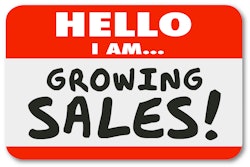



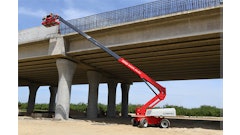

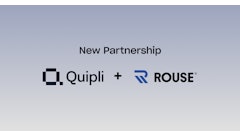
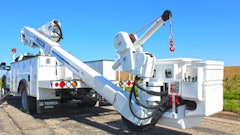

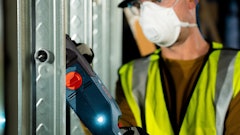
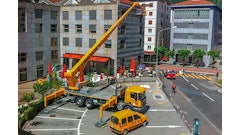
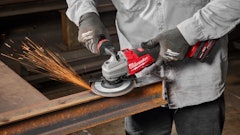
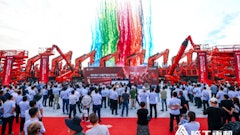
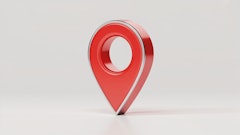
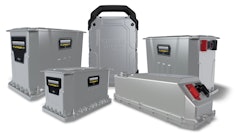
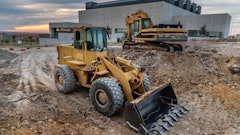
![Building Angled Sm Edit 6050b8d213f1b[1]](https://img.forconstructionpros.com/mindful/acbm/workspaces/default/uploads/2025/09/building-angled-sm-edit6050b8d213f1b1.Ygq5aAos3b.png?ar=16%3A9&auto=format%2Ccompress&crop=focalpoint&fit=crop&fp-x=0.53&fp-y=0.23&fp-z=2&h=135&q=70&w=240)